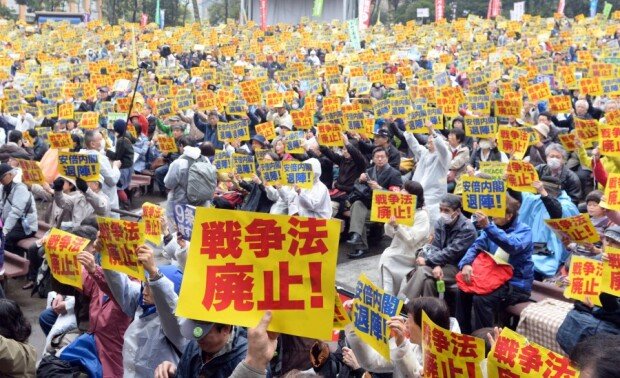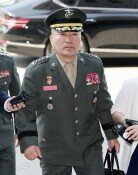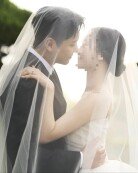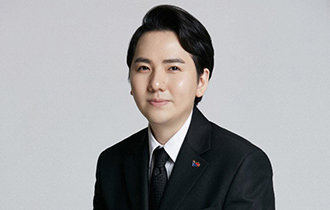Japanese public concerned as Abe changes history textbooks
Japanese public concerned as Abe changes history textbooks
Posted March. 21, 2016 07:14,
Updated March. 21, 2016 07:25

According to the Japanese media on Sunday, publisher Shimizu Shoin explained, in a passage titled "the de facto alteration of Article 9" (of the Constitution) in their sample modern society textbook for approval, that the Abe cabinet changed the constitution interpretation on exercising the collective self-defense rights in July, 2014. However, MEXT pointed out that the title could "sound as if the actual pacifist principles in Article 9 were altered," and the publisher had to change the title to 'Misleading legislation correction and interpretation alteration of Article 9. The Asahi Newspaper conveyed experts' concern that "We might go back to the pre-war era's state textbook system."
The publisher stated that in the original draft, 'proactive contribution to peace' was described as "made to justify exercising the collective self-defense rights in a broad sense." However, in the final draft, the interpretation changed to "proactive contribution to peace, security, and prosperity of the international community."
Suken Publisher had to change a dialogue in their textbook where a teacher says to a student, "Japan might become a country that can start a war in any part of the world," to "You can say the pacifism is meeting a turning point," because the government pointed out that the original version could cause a misunderstanding.
On the other hand, textbooks included more passages about activities of the self-defense force. According to the Sankei Newspaper, four out of eight publishers that applied for the history of geology and citizen section inserted pictures of the self-defense force troops looking for missing persons in wreckage or rescuing old people after the great east Japan earthquake. "It was inevitable that the self-defense force troops were called out after natural disasters occur," Sankei said.
The Japanese ministry also explained, "We decided that the textbooks should be more precise as the minimum voting age is lowered to 18 this year." This comment brought criticism that Abe is trying to use the textbooks as an election tool.
Publishers said that this year's approval process was much stricter than before. According to the Asahi Newspaper, Jitkyo Publisher had arguments five times with the examiner on the Nanjing Massacre and repeatedly made corrections. Their textbook barely passed the examination two days before the deadline when the publisher accepted a corrected version that the examiner suggested.
In the meantime, the Yomiuri Newspaper reported on Saturday, "Seven out of 14 textbooks that cover the comfort women issue changed their description about it." Mostly, they changed it to sound less related to the military and less coercive.
도쿄=장원재특파원 peacechaos@donga.com
Headline News
- Gov’t faces criticism over policy reversals and decision-making processes
- Controversy erupts over ‘single life’ welfare packages
- Gov’t announces worker protection measures for heat waves
- Madonna wearing Kahlo’s items faces controversy over special treatment
- Pirates' Bae Ji-hwan pulls off a stunning come-from-behind victory







